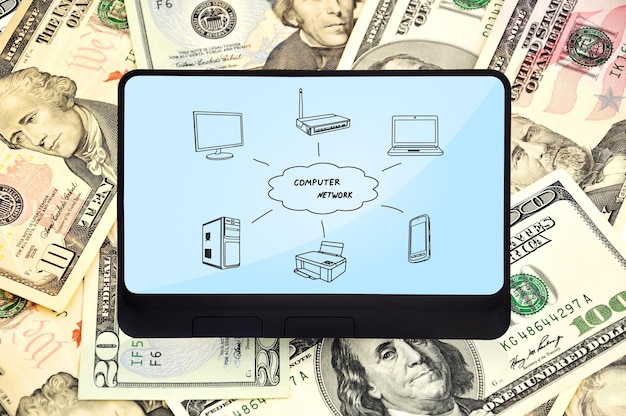Negotiate Like a Pro: Lower Bills & Save Hundreds Yearly

Negotiate Like a Pro: Lower Your Bills and Save Hundreds Each Year is about mastering the art of negotiation to reduce your monthly expenses, covering everything from utilities to subscriptions, and helping you achieve significant savings annually.
Want to **negotiate like a pro: lower your bills and save hundreds each year**? It’s more than just haggling; it’s a strategic approach to managing your finances and reducing your monthly expenses. This guide will equip you with the tools you need to become a savvy negotiator and save money on everything from utilities to credit card rates.
Why Negotiation is Key to Lowering Your Bills
Negotiation isn’t just for big business deals; it’s a powerful tool for everyday savings. Many people simply accept bills as they are, unaware that there’s often room for negotiation. By learning to negotiate effectively, you can unlock substantial savings and improve your financial well-being.
The Power of Asking
Often, the biggest hurdle is simply asking. Companies are frequently willing to lower rates or offer discounts to retain customers rather than lose them to competitors.
Understanding Your Leverage
Before you negotiate, understand what leverage you have. Are you a long-term customer? Have you found a better offer elsewhere? Knowledge is power in any negotiation.
- Research competitive rates before contacting customer service.
- Document your payment history to demonstrate loyalty.
- Be polite and respectful, even when discussing frustrating issues.
Negotiating your bills is not about being aggressive or demanding; it’s about being informed, polite, and persistent. By understanding your value as a customer and knowing what options are available, you can confidently request and often receive lower rates.

Negotiating Your Utility Bills
Utility bills are a regular expense that can often be reduced through negotiation. Water, electricity, gas, and internet providers may offer discounts, better rates, or incentives to keep your business.
Internet and Cable
Many internet and cable companies offer promotional rates that expire after a certain period. Once your promotional rate ends, your bill can increase significantly. Contact your provider and negotiate for a lower rate, mentioning offers from competitors if you find better deals.
Electricity and Gas
While electricity and gas prices may be fixed in some areas, it’s still worth exploring options. Some providers offer energy audits to help you reduce consumption, potentially leading to lower bills. You can also inquire about budget billing, which spreads costs evenly throughout the year.
Consistently reviewing and negotiating your utility bills can lead to substantial savings over time. Don’t hesitate to contact your providers and explore all available options to reduce your monthly expenses.
Lowering Credit Card Interest Rates
Credit card interest rates can be a significant expense, especially if you carry a balance. Negotiating a lower interest rate can save you hundreds of dollars in the long run and help you pay down your debt faster.
Contacting Your Credit Card Company
Start by calling your credit card company and asking to speak with a representative about lowering your interest rate. Be polite and explain that you’ve been a responsible cardholder with a good payment history.
Strategies for Success
Highlight your positive credit history, any offers from other cards, and your commitment to paying down your balance. Be prepared to transfer your balance to a lower-rate card if they refuse to negotiate.
- Mention offers from competing credit cards with lower rates.
- Emphasize your good payment history and credit score.
- Be willing to transfer your balance to another card if necessary.
Negotiating your credit card interest rate can significantly reduce the amount you pay in interest over time. Persistence and preparation are key to a successful negotiation.
Cutting Down on Insurance Costs
Insurance premiums can be a substantial expense, but they are also negotiable. Whether it’s auto, home, or health insurance, there are strategies to lower your costs.
Auto Insurance
Shop around for quotes from multiple insurance providers to compare rates. Increase your deductible to lower your premium, but ensure you can cover the higher out-of-pocket cost if needed. Bundle your auto and home insurance for potential discounts.
Home Insurance
Review your coverage annually to ensure it aligns with the current value of your home. Install safety features such as smoke detectors and security systems, which can qualify you for discounts. Consider raising your deductible to lower your premium.

Lowering your insurance costs requires consistent effort and research. By comparing quotes, adjusting your coverage, and taking advantage of available discounts, you can significantly reduce your premiums.
Subscription Services: Negotiating and Canceling
Subscription services can quickly add up, but many are negotiable or can be canceled altogether. Review your subscriptions and determine which ones are truly essential.
Identifying Unnecessary Subscriptions
Start by listing all your subscriptions, including streaming services, gym memberships, and software subscriptions. Evaluate how often you use each service and whether it’s worth the cost. Cancel any subscriptions you don’t use regularly.
Negotiating Lower Rates
When you decide which subscriptions you want to maintain, contact the providers and negotiate for lower rates. Some companies offer discounts for long-term subscriptions or may be willing to match competitor offers.
Regularly reviewing and negotiating or canceling your subscriptions can free up significant funds in your budget. Be proactive about managing these expenses and eliminate any services that no longer serve your needs.
Healthcare Bills: Questioning and Negotiating
Healthcare bills can be complex and confusing, often containing errors or charges that are negotiable. Don’t hesitate to question and negotiate your healthcare bills to lower your costs.
Reviewing Your Bills
Request an itemized bill from your healthcare provider and carefully review each charge. Look for any discrepancies or services you didn’t receive. Negotiate with the billing department, especially if you’re paying out-of-pocket or can pay a lump sum.
Strategies for Success
Discuss payment plans or financial assistance programs with the hospital or clinic. Ask for the discounted rate that insurance companies receive, as this can significantly lower your bill. Negotiate with the billing department if you can pay a lump sum immediately.
Healthcare bills can be overwhelming, but they are often negotiable. By reviewing charges, questioning discrepancies, and negotiating payment options, you can reduce your healthcare expenses and manage your medical debt more effectively.
| Key Point | Brief Description |
|---|---|
| 💡 Utility Bills | Negotiate internet, cable, and energy bills by comparing rates and inquiring about discounts. |
| 💳 Credit Cards | Lower credit card interest rates by highlighting good payment history and competitor offers. |
| 🛡️ Insurance | Shop around for insurance quotes, increase deductibles, and bundle policies for potential savings. |
| 🎬 Subscriptions | Cancel unnecessary subscriptions and negotiate lower rates for essential services. |
Frequently Asked Questions
▼
Start by researching the average cost for the service you’re negotiating. Understand your current contract and note any offers from competitors. Knowing your leverage is key.
▼
You should aim to negotiate your bills at least once a year, especially for services like internet, cable, and insurance. Some bills, like credit card interest rates, can be negotiated more frequently.
▼
If a company refuses to negotiate, consider taking your business elsewhere. Often, the threat of leaving will prompt them to offer a better deal. Don’t be afraid to explore other options.
▼
Yes, you can negotiate medical bills even with insurance. Review the bill for errors, ask for an itemized statement, and negotiate with the billing department for a lower rate, especially if you can pay in cash.
▼
Yes, it’s worth negotiating even small bills, as the savings can add up over time. Small reductions in multiple bills can lead to significant savings annually, improving your overall financial health.
Conclusion
Mastering the art of negotiation can significantly reduce your monthly expenses and improve your financial well-being. By understanding your leverage, researching options, and being persistent, you can **negotiate like a pro: lower your bills and save hundreds each year**, ultimately achieving greater financial freedom.